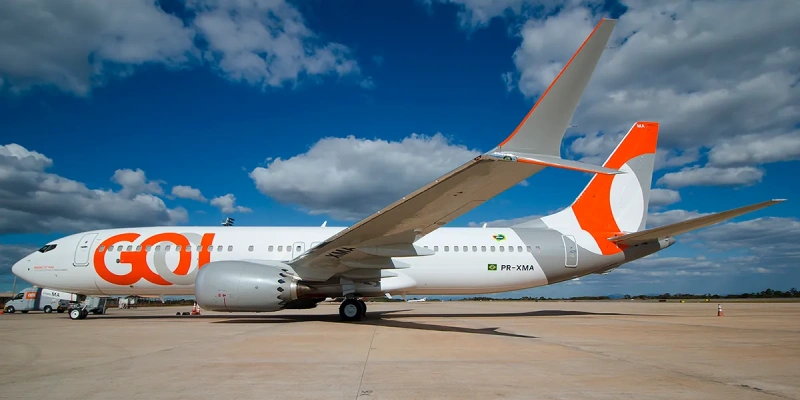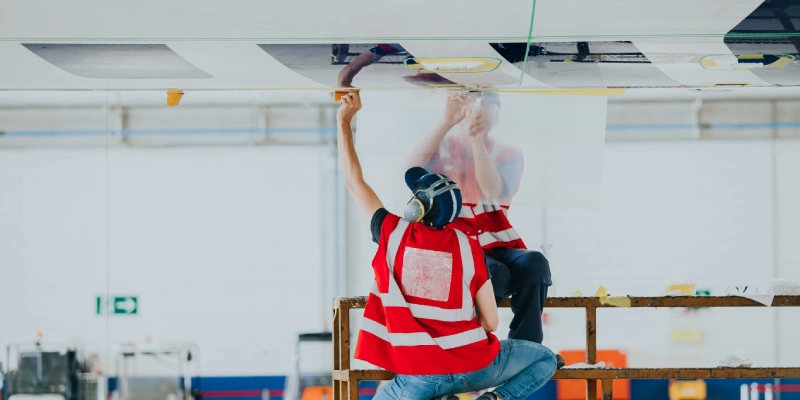Nigeria, with a population of 230 million, is positioning itself as one of Africa’s most promising aviation markets. In this context, the country’s Civil Aviation Authority is evaluating the certification of the C919, the single-aisle aircraft manufactured by China’s COMAC, as confirmed by its Director General, Captain Chris Ona Najomo, in statements to Reuters during the International Civil Aviation Organization assembly in Montreal.
The certification process, which could last several months, would be the first step for the model to operate on domestic routes, even though it still lacks validation from Western regulators.
Nigeria and COMAC’s Strategy
The relationship between Abuja and Beijing is strengthening in the aeronautical sector. The Nigerian Minister of Aviation recently stated that the country is open to COMAC using Nigeria as a platform to access the African market. The Chinese manufacturer, which aims to compete with Airbus and Boeing, has already held several rounds of talks with Nigerian authorities.
Furthermore, COMAC plans to display one of its aircraft during Nigeria’s first international airshow, scheduled for December, although it has not yet confirmed whether it will be the C919 or another model.
→ COMAC Faces Delays in C919 Deliveries and Reduces Production Targets
Challenges for the Chinese Aircraft
The state-owned manufacturer faces significant obstacles: neither of its two models has obtained key certifications in the West, and the company is experiencing delays in its delivery schedule. This is compounded by the temporary suspension imposed by the United States this year on the export of the CFM engines that power the C919, amid trade disputes.
Currently, this aircraft only flies with Chinese airlines, while the ARJ21, a smaller regional jet, is already in operation with three Southeast Asian carriers.
Incentives for Local Operators
Najomo highlighted that COMAC representatives have offered maintenance and training support for Nigerian operators, in addition to exploring “dry lease” schemes, which allow for the leasing of aircraft without crew.
“We told them that if they can guarantee a good dry lease arrangement, that’s the best option,” he said.
Echoing this interest, Abdullahi Ahmed, Chief Executive Officer of NG Eagle, stated that he is considering expanding his fleet—currently comprised of three aircraft—and does not rule out incorporating COMAC aircraft, provided they have proper certification and technical support.
A Favorable Environment for Leasing
The outlook for Nigerian airlines is improving thanks to a recent upgrade in its rating from the Aviation Working Group, which reflects greater compliance with the Cape Town Convention, a treaty that facilitates the financing and leasing of aviation equipment. According to Najomo, this development strengthens lessors’ confidence and allows the country’s 13 airlines to access more modern aircraft on the leasing market.
Drop in Ticket Prices
Although air travel remains a luxury for a large part of the population, real ticket prices in Nigeria fell by 43.6% between 2011 and 2023, according to data from the International Air Transport Association (IATA).
Related Topics
LATAM Resumes Flights Between Bogota and Caracas Starting February 23
LATAM Consolidates Rosario–São Paulo Route: Daily Service Starting in September
GOL Resumes São Paulo-Caracas Route Starting in March
LATAM Commits to AeroSHARK: “Sharkskin” Technology to Expand Across Entire Boeing 777 Fleet

Plataforma Informativa de Aviación Comercial con 13 años de trayectoria.




